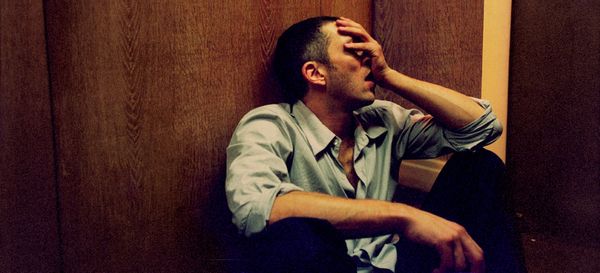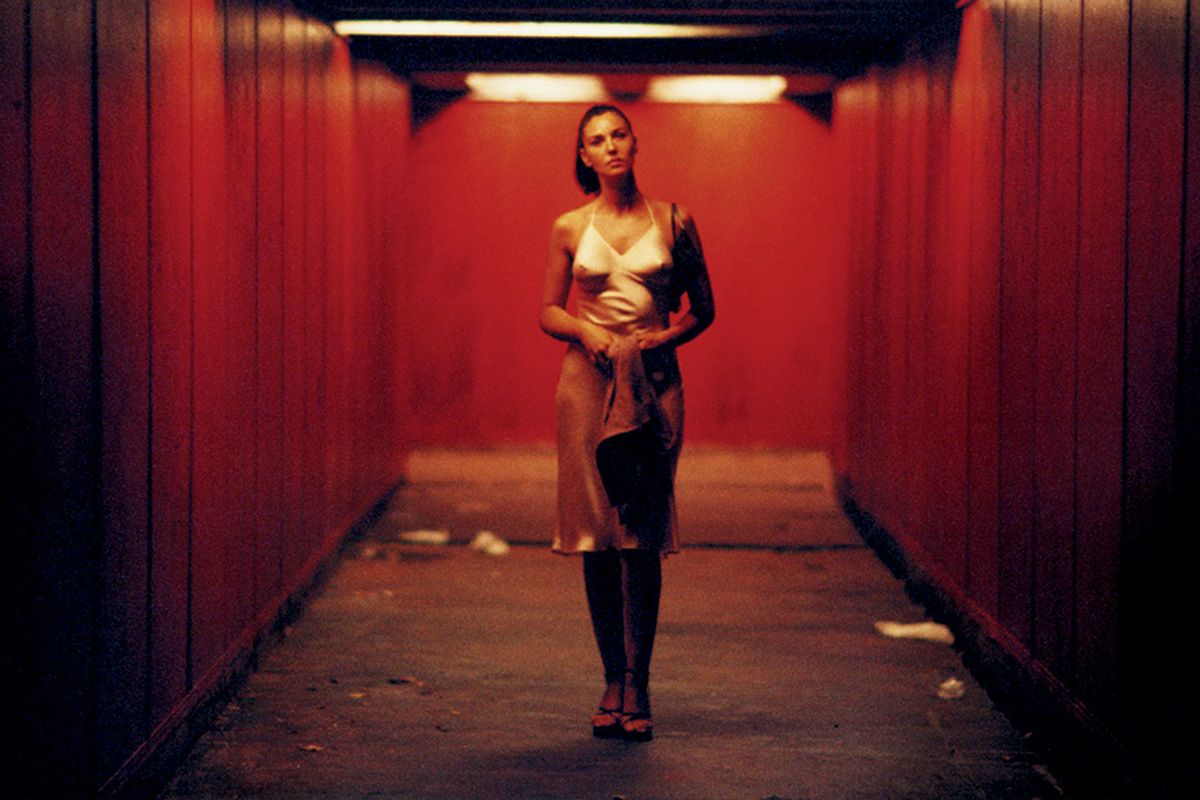When it was originally released in 2002, Gaspar Noé's "Irreversible" stunned audiences that were brave enough to watch it. The film was shocking and appalling and shot in a dizzying style with circling camerawork and strobe lighting that was as likely to nauseate viewers as the vicious and visceral content on screen made them wince and cringe and head up the aisles.
Noé's backwards film has been reassembled in reverse, so it tells this descent into hell in chronological order.
The film tells a graphic rape and revenge story in reverse, so that a violent crime that is committed in the early part the film, is revealed to be payback for a brutal sexual assault and beating that occurred previously that evening — but is seen later in the film. (The narrative in reverse approach has been used before, and not just in "Memento" in 2000; the 1983 film, "Betrayal" recounted an affair from its end to its inception.) It was a clever approach to address ideas of regret, and measure consequences and actions (rash and otherwise). Viewers were gobsmacked by the end, or beginning, as it were, which validates Søren Kierkegaard's concept that "Life can only be understood backwards, but it must be lived forwards."
Now Altered Innocence is releasing "Irreversible: Straight Cut," a "director's re-cut," in which Noé's backwards film has been reassembled in reverse, so it tells this descent into hell in chronological order. It opens on a bright afternoon, where Alex (Monica Bellucci) is reading a book on the grass, and then seen naked in bed with Marcus (Vincent Cassel) where she talks about a dream she had; insists on not being treated like an object; that all her decisions are hers; and soon confirms that she is pregnant. These moments, along with lines she and Marcus utter, such as, "If you hurt me, I swear you'll pay," as well as, "I want to f**k you in the ass," and "The future is already written," all come off as portentous in "Straight Cut" — especially for those familiar with the original version who know what is coming. (Even if folks have not seen "Irreversible" since it premiered more than 20 years ago, it is impossible to forget the extreme physical and sexual violence.)
To its credit, "Straight Cut" is impactful because as the narrative builds to its (foregone) conclusion, the sense of tragedy is amplified. But this approach also undercuts what is so important about the traumatic original. By getting the information in reverse, the disorientation Noé created made viewers constantly recalibrate what unfolded. It may have been a stunt, but it was a remarkable one. This new version is equivalent to an American remake of a foreign film; it is watered down to be more palatable. Not that many Gaspar Noé films are pleasant experiences. He has deliberately made viewers feel uncomfortable since his 1988 debut, "I Stand Alone." His subsequent features, "Enter the Void," "Climax," and even his recent "Vortex," all attest to this kind of deliberate provocation as well.
 Vincent Cassel in "Irreversible: Straight Cut" (Emily De La Hosseray/Altered Innocence)
Vincent Cassel in "Irreversible: Straight Cut" (Emily De La Hosseray/Altered Innocence)
Significantly, the protagonist from "I Stand Alone," the Butcher (Philippe Nahon) makes a cameo at the beginning of "Irreversible" stating, "Time destroys all things," another fateful statement. However, in "Straight Cut," that scene happens at the 1 hour and 20-minute mark, after the gruesome murder, and it is then followed by Marcus' pal (and Alex's ex), Pierre (Albert Dupontel) being arrested, while a seriously injured Marcus is loaded into an ambulance after a brutally violent scene at a gay club. It feels misplaced in the re-edited version, because it interrupts a linear storyline for no clear reason. In contrast, opening the (original) film with this scene serves as a shrewd prologue or preamble — especially as another character tells the Butcher, "There are no bad deeds, just deeds," which is fortuitous given the events about to occur.
What appropriately still disturbs, is the film's centerpiece, the 9-minute rape scene.
What was also notable about "Irreversible" was that the actors were given the situations for each scene and encouraged to improvise. As the hotheaded Marcus spews a series of racist comments to an Asian cabdriver, is homophobic in his quest to find his wife's rapist in a gay club, and is transphobic when questioning a sex worker (who has to expose their penis) Noé's film rubs viewers' noses in unpleasantries.
What appropriately still disturbs, is the film's centerpiece, the 9-minute rape scene. Regardless of which version of the film is seen, this sequence will never, ever lose its power. It is impossible not to recoil as Alex fights her attacker and expresses her pain and tries to call for help with a guttural wailing that rips right through viewers. It is devastating. Noé may have gotten flack for this hard-to-watch sequence, but his unblinking camera captures Alex's experience in a way that makes it impactful on viewers.
"Irreversible" may have felt like a bomb detonating on original release. "Irreversible: Straight Cut" does not quite have that power, but it does gives viewers a chance to revisit this extraordinary film and see it in a new way.
"Irreversible: Straight Cut" opens theatrically Feb. 10 in select cities with expansion continuing throughout the month.

Shares